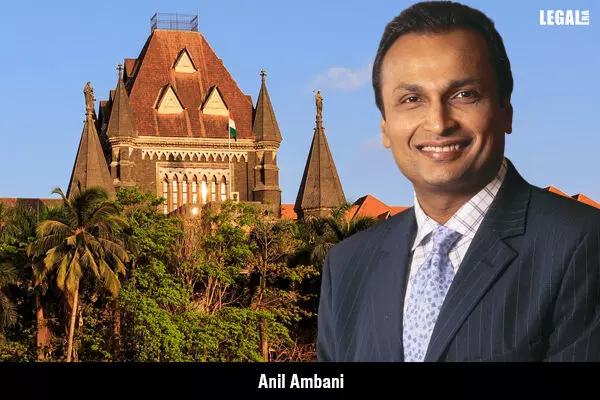- Home
- News
- Articles+
- Aerospace
- AI
- Agriculture
- Alternate Dispute Resolution
- Arbitration & Mediation
- Banking and Finance
- Bankruptcy
- Book Review
- Bribery & Corruption
- Commercial Litigation
- Competition Law
- Conference Reports
- Consumer Products
- Contract
- Corporate Governance
- Corporate Law
- Covid-19
- Cryptocurrency
- Cybersecurity
- Data Protection
- Defence
- Digital Economy
- E-commerce
- Employment Law
- Energy and Natural Resources
- Entertainment and Sports Law
- Environmental Law
- ESG
- FDI
- Food and Beverage
- Gaming
- Health Care
- IBC Diaries
- In Focus
- Inclusion & Diversity
- Insurance Law
- Intellectual Property
- International Law
- IP & Tech Era
- Know the Law
- Labour Laws
- Law & Policy and Regulation
- Litigation
- Litigation Funding
- Manufacturing
- Mergers & Acquisitions
- NFTs
- Privacy
- Private Equity
- Project Finance
- Real Estate
- Risk and Compliance
- Student Corner
- Take On Board
- Tax
- Technology Media and Telecom
- Tributes
- Viewpoint
- Zoom In
- Law Firms
- In-House
- Rankings
- E-Magazine
- Legal Era TV
- Events
- News
- Articles
- Aerospace
- AI
- Agriculture
- Alternate Dispute Resolution
- Arbitration & Mediation
- Banking and Finance
- Bankruptcy
- Book Review
- Bribery & Corruption
- Commercial Litigation
- Competition Law
- Conference Reports
- Consumer Products
- Contract
- Corporate Governance
- Corporate Law
- Covid-19
- Cryptocurrency
- Cybersecurity
- Data Protection
- Defence
- Digital Economy
- E-commerce
- Employment Law
- Energy and Natural Resources
- Entertainment and Sports Law
- Environmental Law
- ESG
- FDI
- Food and Beverage
- Gaming
- Health Care
- IBC Diaries
- In Focus
- Inclusion & Diversity
- Insurance Law
- Intellectual Property
- International Law
- IP & Tech Era
- Know the Law
- Labour Laws
- Law & Policy and Regulation
- Litigation
- Litigation Funding
- Manufacturing
- Mergers & Acquisitions
- NFTs
- Privacy
- Private Equity
- Project Finance
- Real Estate
- Risk and Compliance
- Student Corner
- Take On Board
- Tax
- Technology Media and Telecom
- Tributes
- Viewpoint
- Zoom In
- Law Firms
- In-House
- Rankings
- E-Magazine
- Legal Era TV
- Events
Bombay High Court Suspends Canara Bank’s Classification Of Anil Ambani’s Loan Account As Fraud

Bombay High Court Suspends Canara Bank’s Classification Of Anil Ambani’s Loan Account As Fraud
Bombay High Court stays Canara Bank’s classification of Anil Ambani’s loan account as fraud, seeks RBI's response on repeated bank violations.
The Bombay High Court on Friday stayed Canara Bank’s November 2024 decision to classify industrialist Anil Ambani’s loan account, linked to the financially troubled Reliance Communications, as fraudulent under the Reserve Bank of India’s (RBI) Master Circular.
A Division Bench of Justices Revati Mohite Dere and Neela Gokhale also sought Canara Bank’s response to Ambani’s plea challenging the bank’s decision. The court further directed Ambani to implead the RBI as a party to the proceedings. Additionally, the court asked the RBI to explain whether it intends to take action against banks that have repeatedly violated the RBI’s master circular and the Supreme Court’s rulings, which mandate a hearing for borrowers before their accounts are classified as fraudulent.
The court referred to a related case from December 2024, where it had stayed a similar fraud classification against an independent director of Reliance Communications. "Have they got no accountability? Are they not duty-bound to follow the orders passed by the apex court?" the bench questioned.
Canara Bank’s November 8, 2024, order had classified the loan accounts of Reliance Communications and its subsidiary as fraudulent, citing the misappropriation of a ₹1,050-crore loan issued in 2017.
During the hearing, Ambani’s counsel, Senior Advocate Gaurav Joshi, argued that the bank’s classification order, issued in November, was only communicated to Ambani on December 25—weeks after the Bombay High Court had already stayed a similar classification in another case. Joshi further contended that Canara Bank had informed the RBI about the fraud classification in September 2024, even before issuing the formal order.
Joshi also argued that despite issuing a show-cause notice on October 11, 2023, and submitting a preliminary reply, Canara Bank had not provided critical documents, including forensic reports, that were essential for the classification. Although the bank shared a forensic report, Joshi claimed it was merely the opinion of a Chartered Accountant and that the bank refused to share the materials it relied upon for the classification, despite repeated requests.
In its defense, Canara Bank stated that the fraud classification order was passed on September 6, 2024, and was communicated to the RBI only after the order was issued. The bank further asserted that the forensic report contained sufficient material to support the classification.
The court noted discrepancies in the bank’s position and remarked that RBI should be involved in the case. "We will make RBI a party because RBI needs to take action against banks," the bench said.
Canara Bank was ordered to file its reply by February 28, with the matter scheduled for another hearing on March 6.


